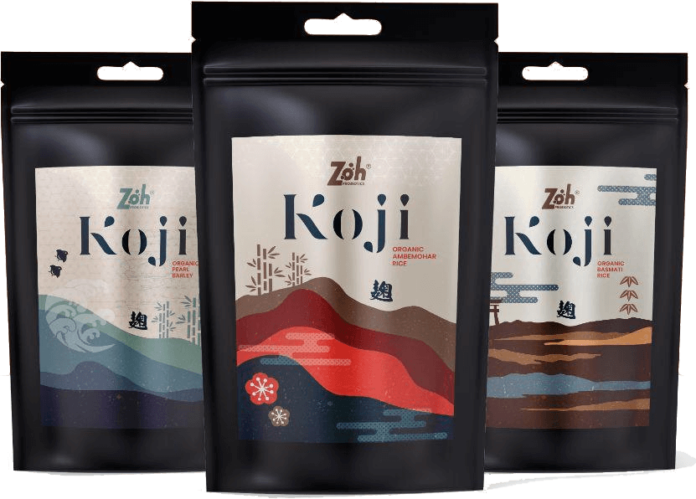Koji is a type of fungus that is commonly used in traditional Japanese cuisine. It is often used to ferment rice, giving it a unique flavor that many love. Koji is also known for its ability to tenderize meat, making it a perfect ingredient for dishes like sushi and sashimi. In addition to its culinary uses, koji produces sake, mirin, and soy sauce. In this piece, we shall discuss koji in Indian food, its benefits, and its uses.
Koji has several beneficial properties that make it ideal for traditional Chinese Medicine (TCM) use. Below are some of the benefits of koji.
1. Koji helps to improve digestion
According to Traditional Chinese Medicine, koji is said to help improve digestion. That is because it contains enzymes that can break down food and absorb nutrients more efficiently. Koji also helps regulate gut motility, relieving symptoms of constipation and diarrhea.
2. Koji has anti-inflammatory properties
Koji contains several compounds that have anti-inflammatory properties. These compounds include chitin, glucans, and mannans. In addition, koji also contains bacteria that produce short-chain fatty acids, which have been shown to have anti-inflammatory effects.
3. Koji boosts immunity
The beneficial bacteria in koji can help to improve gut health and boost immunity. Additionally, koji contains compounds that can stimulate the production of white blood cells and antibodies.
4. Koji has anti-cancer properties
Some studies have shown that koji has anti-cancer properties. That is believed to be due to compounds like chitin and glucans, which can inhibit cancer cell growth. Additionally, koji also contains antioxidants that can protect cells from damage caused by free radicals.
5. Koji aids in weight loss
Koji can help you lose weight by improving digestion and boosting metabolism. Additionally, koji contains fiber which can help to regulate appetite and promote satiety.
6. Koji improves skin health
Japanese geishas first discovered the benefits of koji for the skin. Koji improves skin health by reducing inflammation, promoting collagen production, and increasing moisture retention. Additionally, koji also contains antioxidants that can protect the skin from damage caused by free radicals.
7. Koji has anti-aging properties
Koji is a rich source of enzymes that can break down proteins and promote cell turnover. Additionally, koji also contains antioxidants that can protect cells from damage caused by free radicals. These properties make koji an excellent ingredient for anti-aging products.
8. Koji improves hair health
Koji can improve hair health by reducing inflammation and promoting collagen production. Additionally, koji contains nutrients like biotin and pantothenic acid, essential for healthy hair growth.
9. Koji has anti-stress properties
Koji contains several compounds that have anti-stress properties. These compounds include chitin, glucans, and mannans. In addition, koji also contains bacteria that produce short-chain fatty acids, which have been shown to have anti-stress effects.
10. Koji is an excellent source of vitamins and minerals
Koji is a rich source of vitamins and minerals like vitamin C, riboflavin, niacin, pantothenic acid, and biotin. Additionally, koji contains enzymes that help the body absorb these nutrients more efficiently.
Food that you can ferment using koji
Koji can be used to ferment a variety of foods, such as rice, soybeans, wheat, and millet. Fermented foods made with koji are more nutritious and easier to digest than non-fermented foods. In addition, koji fermentation can also improve the flavor and texture of food.
Bottom line
Koji is a beneficial fungus that has a wide range of health benefits. Koji can be used to improve digestion, boost immunity, aid in weight loss, and improve skin and hair health. Additionally, koji has anti-stress and anti-aging properties. Fermented foods made with koji are more nutritious and easier to digest than non-fermented foods.









